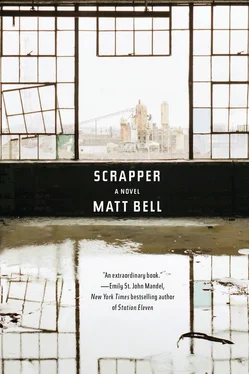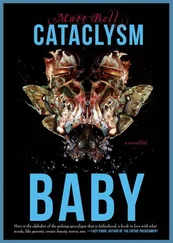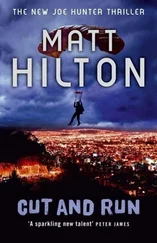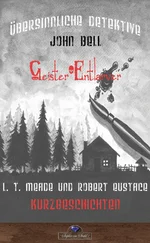The enumerating of possibilities, the weighing of costs, the sharp rise toward a cliff of certainty: this wasn’t the easiest way but for every action there was a right space. Whenever the variables increased he tried to back up, to rethink. In his apartment he loaded the tools into two duffel bags, each meant for athletic gear but put here to different use. Their weight strained his new shoulders, curved his back. He loaded the truck with the bags, returned for the generator and the lights, everything else hidden at the back of his only closet, buried behind his few outfits. As he worked he heard from some cave within his chest the salvor, unopposed by the scrapper one last time.
He could always abandon the tools, he heard himself say. There was still a choice to be made.
It was enough to have saved the boy, he argued — but then he had to ask, Was the boy saved enough?
The salvor and the scrapper were not exactly voices, more urgencies, rushing gushes of suggestion, potential actions. At first hearing them had required a diminishing of Kelly’s own personality through alcohol or exhaustion. Now he heard their urges in every moment and either might make him move.
Underground there was no difference between day and night but he could only risk arriving in the night. He drove back to the plant, found the building again. Everything looked different in the dark but he was careful as he carried the duffel bags in past the shattered outer walls, over dumped trash, blown debris. There were long hallways leading into the plant but he knew which way to head. Inside one room there was the hole and the shattered slope of floor and at the bottom the door busted out of its shape.
Past the door there’d be no way to see him from the surface. There was a certain deepness he wanted, a certain distance from the ground and the city and the sky. Any violence there would be a private act: A man and a man went into a dark room and only one of them came out. A terrible fairy tale the length of a sentence.
When Kelly was finished he took the case notes from his back pocket and he placed them on the floor, their pages thickened with pasted maps, poor photographs, the weight of ink and frequent handling. He took his lighter from his pocket and because he didn’t need them anymore he set the case notes on fire. The flames of his confession didn’t last long but for a time they lit the blank cave of the room with their flicker.
There was the cave down within Kelly too and now he had made that cave this room.
He left the plant but he wasn’t ready to go home. The girl with the limp wasn’t at work but he knew he wasn’t ready to see her, not in this mood. The boy was lost to him and there wasn’t anywhere else he was wanted. As he drove the streets he passed the storefront church he’d seen from the top of the plant, the bright glow of the prayers within. When he parked the truck in front of the windows to watch the dancing prayer inside he caught the eye of some apostle, the leader of the congregation. The apostle held a plastic sword in one hand, lifted the other to beckon Kelly in. A gesture of ecstatic welcome. As if it were so easy for a prodigal to return to the fold.
THE CIRCLE TURNED and the congregation turned around its hem, the apostle leading his followers, their feet dancing behind his feet, tracing the invisible circle his steps circumscribed, a geometry of belief cut across the stained concrete floor, the blackened squares where the rows of washers used to be. The circle contained and guided them and as they turned they lifted toy swords and crimson banners, raised voices toward tongues. The folding-table altar held the speakers and the speakers were containers too, containing cheap electric crackle and the salvation of the congregation, which did not require fidelity, only volume, the voice of the spirit technology-amplified, extracted out of the fire and the dove and magnetized onto tape and uttered upward at decibel strengths born of the far end of the dial.
There were ways to take the air out of a room and this noise was one conceivable method.
Along the edges went the chairs, the buckets lined with plastic bags, ready for the vomit and the retching and the casting out. The congregation used to unfold the chairs into rows but now the chairs were rarely used. Let the faithful sit in their houses. In God’s house they would stand and move to his Word. The spirit needed space to churn but the apostle wasn’t fancy about smells, walls, former tenants. Any empty room could be a space for the spirit to move a miracle and the apostle and his ministers were there to work the deliverance, to cast out the demons of anxiety and shyness, the demons of addiction, the demons of obesity and fornication.
The miracle was that the swords were just imported plastic, made from recycled soda bottles and lead paint. It was the symbol they needed, not what the symbol was made of.
The miracle wasn’t how you were cured. The miracle was how God was willing to cure you again when you fell.
There were at least one hundred eleven ailments a deliverance could cure and the saints could name them all. When the apostle told stories, he encouraged people to take notes. A reminder of what could go wrong. Tattoos drew demons close. Piercings revealed the promiscuous. A woman with a stud in her nose had opened herself to wantonness. When the microphone squealed it was the demon Bling Bling . It wasn’t a biblical name but most of the demons weren’t so named. The enemy bred them from scratch in every age, improved his technology. Anything new could bear his sigil.
The apostle had seen third-degree burns take on cloaks of baby skin, seen cataracts leeched from eyes. Mending lame legs was old and easy work that started in the circle, with the dancing, the music so loud it could shatter eardrums for the spirit to heal. The will was tied to the flesh. You had to get the body exhausted so what ailed it could be drawn free and broken by the Word.
The apostle clapped, asked for a volunteer: Who among you came to be delivered?
Now someone unfolded a chair, placed it before the two ministers in heavy sweaters and slacks flanking the one to be delivered. Everyone else shaking plastic swords in the air, howling in tongues, spinning the circle. From the street passersby could see what they were doing, through the floor-to-ceiling glass meant to show off the mechanics of laundry. Some of the storefront churches smeared their windows with paint or covered them with paper but the apostle left them clear, kept them clean. Some nights he saw a face pressed to the street side of the glass, leaving the smear of the curious, but inside the church they weren’t doing anything needing hiding. He wanted the dark streets to see the bright work being done beneath fluorescent light.
The one to be delivered stepped forward, took his seat. The apostle could see what was inside him, could reckon all his failures, the demons obvious but the bad choices visible too. Because not every impulse was the enemy’s and this man had as much free will as any other.
The one to be delivered shook at the apostle’s touch, recoiled from his voice. His boots stamped the floor, wrung more sweat free from his jumping body. It was darkest bluest winter and the man was dressed for the weather, had kept his coat on the whole dance. The look in his eyes, the exhaustion, the fear, his and not his. He named some of his demons at sentence length, readying his voice for story, but the apostle stopped him.
Demons aren’t complicated, the apostle said, smearing a thumbprint of ash across the other’s forehead. No need to confess their every title. Just give us their names.
Give us Grief . Give us Sorrow .
Say the names Abuse, Abuser, Abused . Say the name Suicide .
Читать дальше












